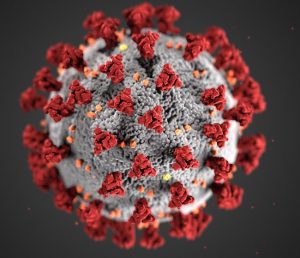A journal has retracted a 2021 paper claiming that vitamin D “significantly reduced the inflammatory markers associated with COVID-19 without any side effects” following criticism that led them to “no longer have confidence in the conclusions.”
The paper “Impact of daily high dose oral vitamin D therapy on the inflammatory markers in patients with COVID 19 disease,” appeared in Scientific Reports, a Springer Nature journal, on May 20, 2021. The paper earned a correction on August 30, and has been cited 29 times, according to Clarivate Analytics’ Web of Science.
Gideon Meyerowitz-Katz, an epidemiologist at the University of Wollongong who has been involved in efforts to clean up the literature around COVID-19 and other subjects, tells us that he told the journal about the errors in early November 2021. Meyerowitz-Katz outlined his criticisms of the paper – which he called “one of the most influential” in the push to use vitamin D for COVID-19 – in a Medium post on April 3.
Sometime after Meyerowitz-Katz contacted the journal in November, the editors asked an editorial board member and Nick Brown – who has also been involved in such efforts – to re-review the paper. That review, according to a copy of the authors’ responses which we’ve made available here along with five annexures (1, 2, 3, 4, 5), found that “there appears to be a fundamental misunderstanding around the question of randomisation.”
The editors said that “the Editorial Board Member indicates that the study may potentially not be scientifically valid.”
The editors also write that Brown found that “problems with data mismatches are pervasive, and while some of them could be accounted for how the data was processed, it is not the case in all instances and it is not something that the readers would be able to discern given the information provided in the published article.”
And, they said, “it appears that the way these results are reported is different for the same analyses across different display figures. There is no scientific justification for this.”
Madhu Latha Karra, of Nizam’s Institute of Medical Sciences in Hyderabad and the corresponding author of the paper, responded with 15 pages of point-by-point counterarguments, and urged the editors not to retract the paper. But earlier this week, the journal did so:
After publication concerns were raised about several aspects of the study, in particular that at baseline there are large differences in the parameters measured indicating that randomisation may not have been performed correctly. Post-publication peer review has confirmed that the alternative allocation method used in this study is not appropriate for randomised clinical trials. This means that the patients were not correctly randomised and therefore the differences in outcome seen between the two arms of the study cannot be attributed to the Pulse D therapy. The Editors therefore no longer have confidence in the conclusions of this study.
Maheshwar Lakkireddy, R. D. Malathi, Madhu Latha Karra, Ragini, Sangeetha Chinapaka, and K. S. S. Sai Baba disagree with this retraction. Srikanth Goud Gadiga, I. S. S. V. Prasad Murthy Raju, and Manohar Kandakatla have not responded to correspondence from the Editors about this retraction.
Karra told us:
We presented our data and manuscript which was peer reviewed extensively before publication. Had the reasons for retraction were considered before publication we would have been happy to modify the conclusions and text as deemed fit. Kindly notice that data and wordings have been the same ever since the inception of the publication process.
Before retraction, we replied to each and every query posed by the editorial team. Even Raw data and all statistical calculations were submitted for cross verification by the editorial team. We would have been grateful if the editorial team gave us a chance to correct the statements, by retaining the same scientific data, if the statements or conclusions were retrospectively found to be dissatisfactory to the editors or readers. Resorting to unilateral Retraction was hurting.
The retraction is the 221st of a paper about COVID-19, by our count.
Like Retraction Watch? You can make a one-time tax-deductible contribution by PayPal or by Square, or a monthly tax-deductible donation by Paypal to support our work, follow us on Twitter, like us on Facebook, add us to your RSS reader, or subscribe to our daily digest. If you find a retraction that’s not in our database, you can let us know here. For comments or feedback, email us at [email protected].

I haven’t read the study and examined it’s details. But the way I understand randomization, difference of baseline factors doesn’t mean that randomization was wrong, it simply may mean that the results may be influenced by “chance”. It’s a different debate whether the method of randomization is right. Most of the randomization doesn’t have probability sampling, thus anyway, the results of them to be taken with a generous pinch of salt.
This is a “different” reason to retract a paper. “The editors said that “the Editorial Board Member indicates that the study may potentially not be scientifically valid.”? If a study is retracted for not being scientifically valid – then the data cleaning needs to be done for 100000s of papers which appear in all sorts of journals. I think the reason for retraction is not scientifically justified. i know the person mentioned above who assisted the investigated involved in identifying the scientific “misdoing” for a long time- i read his tweets, but what he says “….it is not something that the readers would be able to discern given the information provided in the published article.” Again, i also don’t understand many scientific data published in high profile journals, that doesn’t mean that the paper should be rejected. I am not one of the authors nor involved in the study, but i thought there should be more “valid” reasons for a retraction.